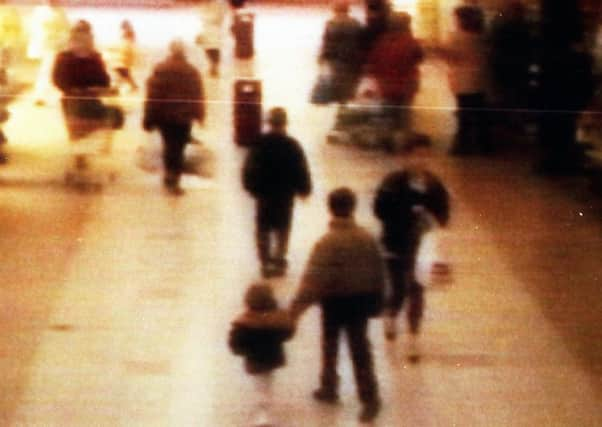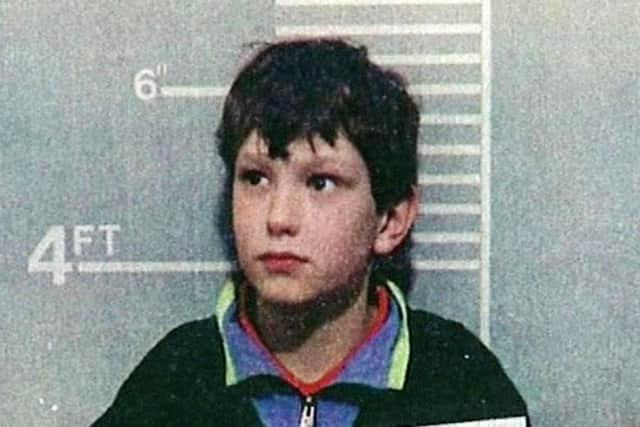Dani Garavelli: Society must grow up in dealing with child killers


The sight of their baby faces, however, did little to temper the public bloodlust. As they were driven to Preston Crown Court, grown men pounded their fists on the prison van. Though a handful of commentators, including Blake Morrison, delved into their pasts for some clue as to what turns 10-year-olds into killers, the usual suspects – the Mail, the Express, the Sun – fed public hysteria. The Sun was responsible for a 280,000-signature petition calling for the minimum tariff of the boys’ life sentences to be increased from 10 years. Ever compliant, the then Home Secretary Michael Howard raised it to 15 in what was later described as an act of “institutionalised vengeance.”
You might have hoped a distance of 25 years would have brought some perspective. But last week the C4 documentary The Bulger Killers: Was Justice Done? provoked the same furious backlash as the trial itself. Except now we have social media, so those who believe the boys should have been tortured or hanged or left to rot in hell could voice their opinions on a global platform.
Advertisement
Hide AdAdvertisement
Hide AdThe Sun took up its default position, with a petition calling for an inquiry into the decision to release Venables (who was last week jailed again for possessing indecent images of children) and anyone who expressed the slightest reservation about the trying of children in an adult court was subjected to as much hostility as if they’d been complicit in the crime.


Yet, these issues have been a source of disquiet for half a century; they were already causing unease in 1968 when two friends – Mary Bell and Norma Bell – then aged 10 and 12, were accused of the murders of two toddlers at Newcastle Assizes. Back then the writer Gitta Sereny was troubled by the sight of Mary, who was eventually convicted of manslaughter (Norma was acquitted), alone and fidgety, as proceedings she couldn’t be expected to understand unfolded around her.
Likewise, Thompson and Venables were, as one writer put it, “dwarfed by the weight and majesty of the place,” as barristers in full regalia tried to prove their guilt.
Far from prompting an overhaul of the system, the Bulger case served only to harden attitudes. In 1997, in harmony with the Labour Party’s “tough on crime, tough on the causes of crime” rhetoric, the defence of doli incapax, the presumption that a child between 10 and 13 was incapable of evil, unless the prosecution could prove otherwise, was abolished. The Bulger case is also held to be one of the reasons the age of criminal responsibility in England is still as low as 10.
Whenever there are attempts to adopt a more enlightened approach, they meet with resistance. The decision to grant Thompson and Venables lifelong anonymity was strongly opposed by critics, who now, doubtless, feel vindicated by Venables’ continued offending. There are important questions to be asked about why he was re-released into the community after first being called back to jail for possession of child pornography in 2010, but the illegal circulation of his photograph online in the hopes of provoking an attack is unedifying.


At least initially, those who offend as children should be given every possible shot at redemption. Though it can never be guaranteed, the justice system has a good track record in rehabilitating young people who commit one serious crime (as opposed to being serial juvenile offenders). Bell appears to have forged a stable life for herself and her daughter; Thompson is in a long-term relationship with a male partner. There is no suggestion they have offended again.
Of course, Thompson and Venables are deeply troubling; they perpetrated an unconscionable crime against a defenceless toddler – battering him with bricks and pieces of metal before leaving his body on the railway line. If I were his mother, Denise Fergus, I would never forgive them.
But surely those of us who are not directly involved in the tragedy are capable of a less medieval response than the one unleashed last week.
Advertisement
Hide AdAdvertisement
Hide AdNot all countries’ judicial systems take the same punitive approach to child offenders as England. Here in Scotland, the age of criminal responsibility is set to be raised from eight to 12 (the same as the existing age for criminal prosecution). We have our children’s hearings system, which has the “best interest of the child” at its centre – and though a young person who had killed might still be tried in an adult court, there seems to be less hysteria around proceedings.
In 1991, 11-year-old Richard Keith was convicted of culpable homicide at Edinburgh High Court after drowning three-year-old Jamie Campbell in Drumchapel, but his crime did not provoke a national backlash on the scale of the Bulger case.
Keith is now living under his original identity somewhere in Scotland. The lack of publicity is said to be a source of pain for Jamie’s family. But maybe it is healthier for them not to have had their grief co-opted to further some right-wing agenda.
There has been much talk, too, of a case in Norway, where the age of criminal responsibility is 15. The year after James Bulger was murdered, two six-year-old boys killed a five-year-old girl in Trondheim. They were never identified or demonised. Admittedly, the circumstances there were different (six year olds would not be prosecuted in England or Scotland either), but it was the cultural attitude – the acknowledgement that children of that age require help, not retribution – that was so remarkable.
Here, it can feel as if there is a superficiality to the response to such events. Perhaps it is easier to conclude some children are born wicked than to ask ourselves searching questions about the difference between being able to distinguish between right and wrong and being able to fully grasp the consequences of your actions. Or to wonder if – when kids as young as Thompson and Venables turn violent – society bears some burden of responsibility.
But the willingness to grapple with such complexities is the hallmark of maturity. As always when it comes to Thompson and Venables, I will leave the last words to Morrison, author of the book As If. “Evil won’t do,” he wrote on the 10th anniversary on James’ killing. “That’s one of the lessons of the Bulger case. Time to grow up. Evil won’t do.”